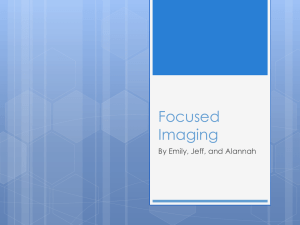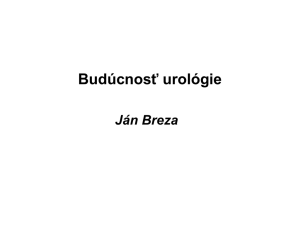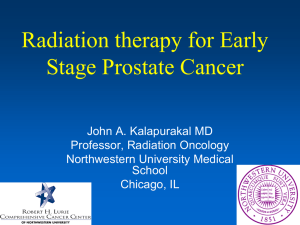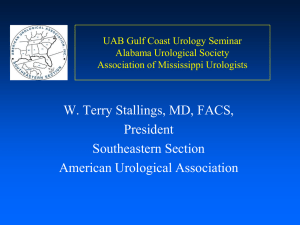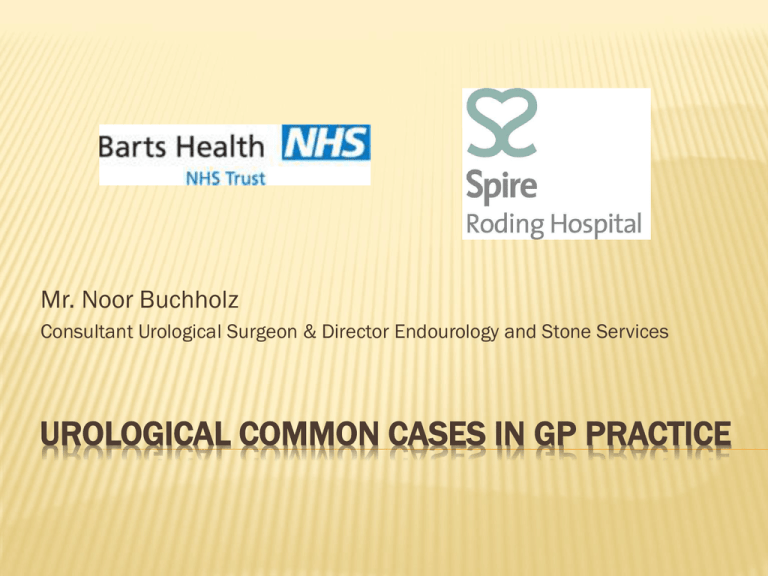
Mr. Noor Buchholz
Consultant Urological Surgeon & Director Endourology and Stone Services
UROLOGICAL COMMON CASES IN GP PRACTICE
CASE 1
33 year old female
Dysuria, frequency, cloudy urine
No fever, no kidney pain
No Hx of similar episodes
Wait for urine culture?
Imaging?
Refer to urology?
Immediate treatment?
CASE 1
Wait for urine culture?
Imaging?
Refer to urology?
Immediate treatment?
CASE 1
Dipstick sufficient
Wait for urine culture?
Imaging?
Refer to urology?
Immediate treatment?
CASE 1
Dipstick sufficient
Not needed
Wait for urine culture?
Imaging?
Refer to urology?
Immediate treatment?
CASE 1
Dipstick sufficient
Not needed
No
Wait for urine culture?
Imaging?
Refer to urology?
Immediate treatment?
CASE 1
Dipstick sufficient
Not needed
No
yes
Table 3.1: Recommended antimicrobial therapy in acute uncomplicated cystitis in otherwise healthy premenopausal women
Antibiotics
Daily dose
Duration of therapy
Fosfomycin trometamol°
3 g SD
1 day
Nitrofurantoin
50 mg q6h
7 days
Nitrofurantoin macrocrystal
100 mg bid
5-7 days
Pivmecillinam*
400 mg bid
3 days
Pivmecillinam*
200 mg bid
7 days
Ciprofloxacin
250 mg bid
3 days
Levofloxacin
250 mg qd
3 days
Norfloxacin
400 mg bid
3 days
Ofloxacin
200 mg bid
3 days
Cefpodoxime proxetil
100 mg bid
3 days
Alternatives
If local resistance pattern is known (E. coli resistance < 20%)
Trimethoprim-sulphamethoxazole
160/800mg bid
3 days
Trimethoprim
200 mg bid
5 days
CASE 1
CASE 1
Patient has come back with cystitis x3 over 8
months
Each time ABX worked well
Urine culture?
Imaging?
Refer to urology?
Immediate treatment?
CASE 1
Urine culture?
Imaging?
Refer to urology?
Immediate treatment?
CASE 1
yes
Urine culture?
Imaging?
Refer to urology?
Immediate treatment?
CASE 1
Yes
Urography, cystography,
cystoscopy not routinely –
perhaps US KUB
Urine culture?
Imaging?
Refer to urology?
Prophylactic treatment?
CASE 1
Yes
Urography, cystography,
cystoscopy not routinely –
perhaps US KUB
Not in the abscence of risk
factors
Table 2.1: Host risk factors in UTI (refer to urologist)
RF = Risk Factor; * = not well defined; ** = usually in combination with other RF (i.e. pregnancy, urological internvention).
Category of risk factor
Examples of risk factors
No known/associated RF
- Healthy premenopausal women
RF of recurrent UTI but no risk of severe outcome
- Sexual behaviour and contraceptive devices
- Hormonal deficiency in post menopause
- Secretory type of certain blood groups
- Controlled diabetes mellitus
Extra-urogenital RF, with risk of more severe outcome
- Pregnancy
- Male gender
- Badly controlled diabetes mellitus
- Relevant immunosuppression*
- Connective tissue diseases*
-Prematurity, new-born
Nephropathic disease, with risk of more severe outcome
- Relevant renal insufficiency*
-Polycystic nephropathy
Urological RF, with risk or more severe outcome, which can be
resolved during therapy
- Ureteral obstruction (i.e. stone, stricture)
- Transient short-term urinary tract catheter
- Asymptomatic Bacteriuria**
- Controlled neurogenic bladder dysfunction
-Urological surgery
Permanent urinary Catheter and non resolvable urological RF, with
risk of more severe outcome
- Long-term urinary tract catheter treatment
- Non resolvable urinary obstruction
- Badly controlled neurogenic bladder
CASE 1
Urine culture?
Imaging?
Refer to urology?
Prophylactic treatment?
CASE 1
Yes
Urography, cystography,
cystoscopy not routinely –
perhaps US KUB
Not in the absence of risk
factors
optional
General advise
CASE 1
Drink > 2.5 liters/ day
Acidification Cranberry/
Vitamin C 1 gram/ day
Genital hygiene pH-neutral
alkaline-free soaps
Empty bladder +/- sex
Table 3.3: Continuous antimicrobial prophylaxis regimens for women with recurrent UTIs
Regimens
TMP-SMX* 40/200 mg once daily
TMP-SMX 40/200 mg thrice weekly
Trimethoprim 100 mg once daily
Nitrofurantoin 50 mg once daily
Nitrofurantoin 100 mg once daily
Cefaclor 250 mg once daily
Cephalexin 125 mg once daily
Cephalexin 250 mg once daily
Norfloxacin 200 mg once daily
Ciprofloxacin 125 mg once daily
Fosfomycin 3 g every 10 days
CASE 1
Table 3.4: Postcoital antimicrobial prophylaxis regimens for women with recurrent UTIs
“In appropriate women with recurrent uncomplicated cystitis, self-diagnosis and self-treatment with a
short-course regimen of an antimicrobial agent should be considered “
Regimens
TMP-SMX* 40/200 mg
TMP-SMX 80/400 mg
Nitrofurantoin 50 or 100 mg
Cephalexin 250 mg
Ciprofloxacin 125 mg
Norfloxacin 200 mg
Ofloxacin 100 mg
CASE 1
CASE 1
Behavioural and general advise as well as oneshot low-dose therapy worked well
Patient presents 2 months pregnant worried
about UTI’s and baby
No acute signs of cystitis
Asymptomatic bacteriuria ≥ 105 cfu/mL
Another urine culture?
Imaging?
Refer to urology?
Treatment in the abscence of
symptoms?
CASE 1
Another urine culture?
Imaging?
Refer to urology?
Treatment in the abscence of
symptoms?
CASE 1
in an asymptomatic pregnant woman, bacteriuria is considered
significant if two consecutive voided urine specimens grow ≥ 10 5
cfu/mL of the same bacterial species on quantitative culture
Another urine culture?
in an asymptomatic pregnant woman, bacteriuria is considered
significant if two consecutive voided urine specimens grow ≥ 10 5
cfu/mL of the same bacterial species on quantitative culture
Imaging?
US KUB to exclude hydronephrosis – avoid Xray where possible
Refer to urology?
Treatment in the abscence of
symptoms?
CASE 1
Another urine culture?
Imaging?
in an asymptomatic pregnant woman, bacteriuria is
considered significant if two consecutive voided urine
specimens grow ≥ 105 cfu/mL of the same bacterial
species on quantitative culture
US KUB
If risk factors present (pregnancy can be regarded as a
risk factor!)
Asymptomatic bacteriuria detected in pregnancy should
be eradicated with antimicrobial therapy
Refer to urology?
Treatment in the absence of
symptoms?
CASE 1
Table 3.5: Treatment regimens for asymptomatic bacteriuria and cystitis in pregnancy
G6PD = glucose-6-phosphate dehydrogenase
Antibiotics
Duration of therapy
Comments
Nitrofurantoin (Macrobid®) 100 mg
q12 h, 3-5 days
Avoid in G6PD G6PD: glucose-6phosphate dehydrogenasedeficiency
Amoxicillin 500 mg
q8 h, 3-5 days
Increasing resistance
Co-amoxicillin/clavulanate 500 mg
q12 h, 3-5 days
Cephalexin (Keflex®) 500 mg
q8 h, 3-5 days
Fosfomycin 3 g
Trimethoprim-sulfamethoxazole
Single dose
q12 h, 3-5 days
CASE 1
Increasing resistance
Avoid trimethoprim in first
trimester/term and sulfamethoxazole
in third trimester/term
Figure 2.1: Traditional and improved classification of UTI as proposed by the EAU European Section of
Infection in Urology (ESIU)
CASE 2
45 year old male
No symptoms
On health check microhaematuria
Refer immediately to
urology?
Further imaging?
Risk factors for Ca?
CASE 2
Refer immediately to
urology?
CASE 2
Dipstick haematuria is a
misnomer!
false-positive by
hemoglobinuria,
myoglobinuria, concentrated
urine, menstrual blood,
rigorous exercise
Always confirm by formal
MSU – then refer
Further imaging?
CASE 2
Further imaging
CASE 2
May loose time in case of
proven microhaematuria
One-stop haematuria clinic
CT – IVU & cystoscopy
Risk factors for Ca?
CASE 2
Risk factors for Ca?
Conclusions
The incidence of muscle-invasive disease has not changed for 5 years.
Active and passive tobacco smoking continues to be the main risk factor, while
exposure-related incidence is decreasing.
The increased risk of developing bladder cancer in patients submitted to
external beam radiation therapy, brachytherapy or a combination of external
beam radiation therapy and brachytherapy must be taken into account during
patient follow-up. As bladder cancer requires time to develop, patients treated
with radiation at a young age are at the greatest risk and should be followed up
closely.
The estimated male-to-female ratio for bladder cancer is 3.8:1.0. Women are
more likely to be diagnosed with primary muscle-invasive disease than men.
Currently, treatment decisions cannot be based on molecular markers.
CASE 2
RECOGNIZED CAUSES OF MICROSCOPIC HEMATURIA
Glomerular causes
Alport's syndrome
Fabry's disease
Goodpasture's syndrome
Hemolytic uremia
Henoch-Schönlein purpura
Immunoglobulin A nephropathy
Lupus nephritis
Membranoproliferative glomerulonephritis
Mesangial proliferative glomerulonephritis
Nail-patella syndrome
Other postinfectious glomerulonephritis: endocarditis, viral
Poststreptococcal glomerulonephritis
Thin basement membrane nephropathy (benign familial hematuria)
Wegener's granulomatosis
Nonglomerular causes
Renal (tubulointerstitial)
Acute tubular necrosis
Familial
Hereditary nephritis
Medullary cystic disease
Multicystic kidney disease
Polycystic kidney disease
RECOGNIZED CAUSES OF MICROSCOPIC HEMATURIA
Infection: pyelonephritis, tuberculosis (e.g., travel to Indian subcontinent), schistosomiasis (e.g., travel to Africa)
Interstitial nephritis
Drug induced: penicillins, cephalosporins, diuretics, nonsteroidal anti-inflammatory drugs, cyclophosphamide (Cytoxan), chlorpromazine
(Thorazine), anticonvulsants
Infection: syphilis, toxoplasmosis, cytomegalovirus, Epstein-Barr virus
Systemic disease: sarcoidosis, lymphoma, Sjögren's syndrome
Loin pain–hematuria syndrome
Metabolic
Hypercalciuria
Hyperuricosuria
Renal cell carcinoma
Solitary renal cyst
Vascular disease
Arteriovenous malformation
Malignant hypertension
Renal artery embolism/thrombosis
Renal venous thrombosis
Sickle cell disease
RECOGNIZED CAUSES OF MICROSCOPIC HEMATURIA
Extrarenal
Benign prostatic hypertrophy
Calculi
Coagulopathy related
Drug induced (warfarin [Coumadin], heparin)
Secondary to systemic disease
Congenital abnormalities
Endometriosis
Factitious
Foreign bodies
Infection: prostate, epididymis, urethra, bladder
Inflammation: drug or radiation induced
Perineal irritation
Posterior ureteral valves
Strictures
Transitional cell carcinoma of ureter, bladder
Trauma: catheterization, blunt trauma
Tumor
Other causes
Exercise hematuria
Menstrual contamination
Sexual intercourse
CASE 3
33 year old female
Obese, blond
Pain right upper abdomen after food
Imaging?
CASE 3
Imaging?
Questions to be asked?
CASE 3
US abdomen:
Gallstones
2cm single simple cyst in left
kidney
Imaging?
Further imaging?
Refer urology?
Follow up?
Treatment needed?
CASE 3
US abdomen:
Gallstones
2cm single simple cyst in left
kidney
Imaging?
Further imaging?
CASE 3
Imaging?
Further imaging?
CASE 3
CT-IVU if complex cyst or
symptomatic only
Imaging?
Further imaging?
Refer urology?
CASE 3
If symptomatic and/ or
complex cyst
Imaging?
Further imaging?
Refer urology?
Follow up?
CASE 3
Imaging?
Further imaging?
Refer urology?
Follow up?
CASE 3
If symptomatic and/ or
complex cyst
Imaging?
Further imaging?
Refer urology?
Follow up?
Treatment needed?
CASE 3
Imaging?
Further imaging?
Refer urology?
Follow up?
Treatment needed?
CASE 3
If symptomatic and/ or
complex cyst
Table 4: The Bosniak classification of renal cysts
Bosniak category
Features
Work-up
I
A simple benign cyst with a hairline-thin wall that does not contain
septa, calcification, or solid components. It measures water density
and does not enhance with contrast material.
Benign
II
A benign cyst that may contain a few hairline-thin septa. Fine
Benign
calcification may be present in the wall or septa. Uniformly highattenuation lesions of < 3 cm, which are sharply marginated and do not
enhance.
These cysts might contain more hairline-thin septa. Minimal
Follow-up. A
enhancement of a hairline-thin septum or wall can be seen. There may small proportion
be minimal thickening of the septa or wall. The cyst may contain
are malignant.
calcification that might be nodular and thick, but there is no contrast
enhancement. There are no enhancing soft-tissue elements. This
category also includes totally intrarenal, non-enhancing, highattenuation renal lesions of > 3 cm. These lesions are generally wellmarginated.
IIF
III
These lesions are indeterminate cystic masses that have thickened
irregular walls or septa in which enhancement can be seen.
IV
These lesions are clearly malignant cystic lesions that contain
enhancing soft-tissue components.
Surgery or followup. Malignant in
> 50% lesions.
Surgical therapy
recommended.
Mostly malignant
tumour.
CASE 4
55 year old male
Routine check-up PSA 5.8
No LUTS
No family Hx of prostate cancer
Further diagnostics?
CASE 4
Further diagnostics?
CASE 4
RDE: medium-sized firm
smooth prostate, non-tender,
no nodules
Further diagnostics?
Differential diagnosis?
CASE 4
RDE: medium sized firm
amooth prostate, non-tender,
no nodules
Further diagnostics?
Differential diagnosis?
CASE 4
RDE: medium sized firm
amooth prostate, non-tender,
no nodules
Prostatitis (asymptomatic)
Mechanical (catheter etc.)
Prostate cancer
Further diagnostics?
Differential diagnosis?
Refer to urology?
CASE 4
RDE: medium sized firm
amooth prostate, non-tender,
no nodules
Prostatitis (asymptomatic)
Mechanical (catheter etc.)
Prostate cancer
Further diagnostics?
Differential diagnosis?
Refer to urology?
CASE 4
RDE: medium sized firm
amooth prostate, non-tender,
no nodules
Prostatitis (asymptomatic)
Mechanical (catheter etc.)
Prostate cancer
Absolutely! Patient needs
TRUS-biopsy of prostate.
CASE 5
18 year old male
Since 3 months painless swelling left testis
No LUTS
No other symptoms
Examination
CASE 5
Examination
CASE 5
2cm firm swelling painless
adjacent to left testicle
Examination
Next step?
CASE 5
2cm firm swelling painless
adjacent to left testicle
Examination
2cm firm swelling painless
adjacent to left testicle
Next step?
US testes/ scrotum
If TU suspected TU markers
(alpha-FP, beta-HCG, LDH)
CASE 5
US
2cm epidydimal cyst
TUM
normal
Refer to urology?
CASE 5
US
2cm epidydimal cyst
TUM
Normal
Refer to urology?
Only if becomes symptomatic
(pain/ discomfort/ cosmesis)
CASE 5
CASE 6
65 year old male
Since 2 years weak stream, feeling of
incomplete emptying, MF 8x day/ 3x night
Further diagnostics?
CASE 6
Further diagnostics?
CASE 6
RDE
Further diagnostics?
CASE 6
RDE
US KUB (RU/ prostate size)
Further diagnostics?
CASE 6
RDE
US KUB (RU/ prostate size)
PSA
Further diagnostics?
Refer to urology?
CASE 6
RDE: prostate enlarged/
smooth
US KUB (RU/ prostate size):
RU 50ml/ Pvol 45ml
PSA: 1.8
Further diagnostics?
RDE: prostate enlarged/
smooth
US KUB (RU/ prostate size):
RU 50ml/ Pvol 45ml
PSA: 1.8
No
Refer to urology?
Treatment?
CASE 6
Further diagnostics?
Refer to urology?
Treatment?
CASE 6
RDE: prostate enlarged/
smooth
US KUB (RU/ prostate size):
RU 50ml/ Pvol 45ml
PSA: 1.8
No
Alpha-blocker
1st annual control
CASE 6
RDE: prostate enlarged/
smooth
US KUB (RU/ prostate size):
RU 120ml/ Pvol 50ml
PSA: 2.1
1st annual control
Refer to urology?
CASE 6
RDE: prostate enlarged/
smooth
US KUB (RU/ prostate size):
RU 120ml/ Pvol 50ml
PSA: 2.1
Yes (symptom progression
under treatment)
1st annual control
Refer to urology?
CASE 6
RDE: prostate enlarged/
nodule right lobe
US KUB (RU/ prostate size):
RU 30ml/ Pvol 35ml
PSA: 1.9
1st annual control
RDE: prostate enlarged/
nodule right lobe
US KUB (RU/ prostate size):
RU 30ml/ Pvol 35ml
PSA: 1.9
Yes (needs TRUS-biopsy)
Refer to urology?
CASE 6
1st annual control
Refer to urology?
CASE 6
RDE: prostate enlarged/
smooth, no nodule
US KUB (RU/ prostate size):
RU 25ml/ Pvol 40ml
PSA: 4.1
1st annual control
Refer to urology?
CASE 6
RDE: prostate enlarged/
smooth, no nodule
US KUB (RU/ prostate size):
RU 25ml/ Pvol 40ml
PSA: 4.1
Yes (needs TRUS-biopsy)
Alpha-reductase inhibitor
added
CASE 6
RDE: prostate enlarged/
smooth, no nodule
US KUB (RU/ prostate size):
RU 70ml/ Pvol 55ml
PSA: 2.2
Alpha-reductase inhibitor
added
1st annual control
Refer to urology?
CASE 6
RDE: prostate enlarged/
smooth, no nodule
US KUB (RU/ prostate size):
RU 70ml/ Pvol 55ml
PSA: 2.2
Alpha-reductase inhibitor
added
1st annual control under
combination Rx
Refer to urology?
RDE: prostate enlarged/
smooth, no nodule
US KUB (RU/ prostate size):
RU 70ml/ Pvol 55ml
PSA: 2.2
Yes (needs TRUS-biopsy)
ARI halve PSA therefore a stable PSA is
effectively a doubling.
CASE 6



